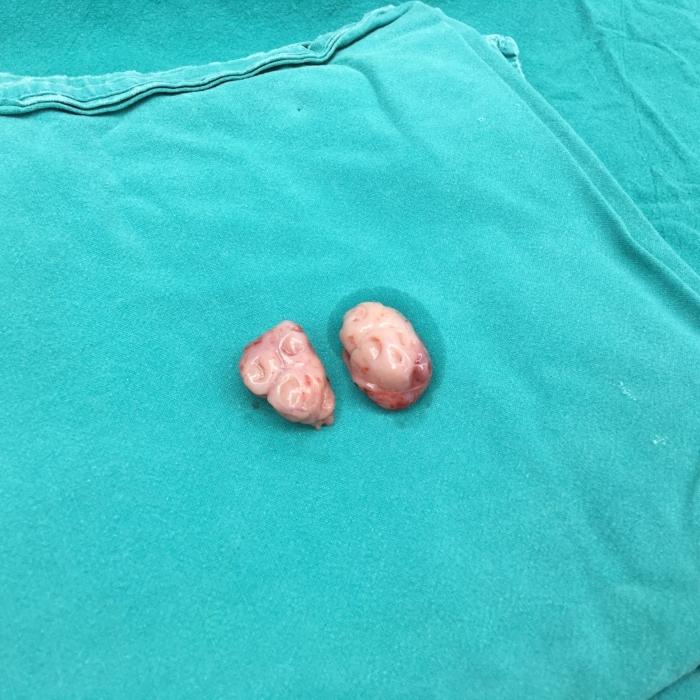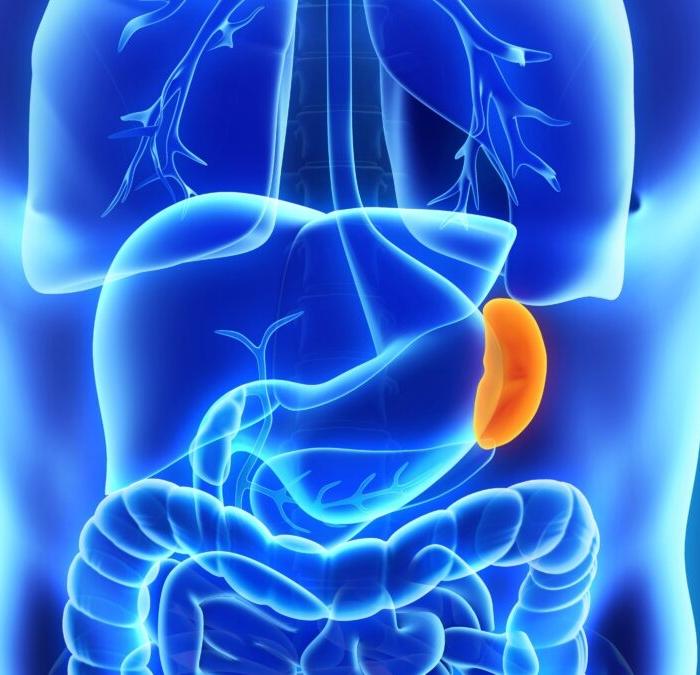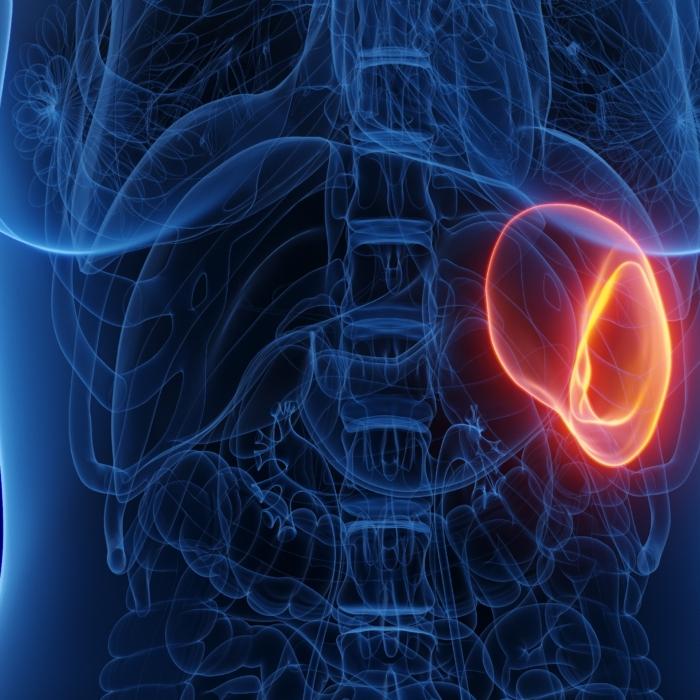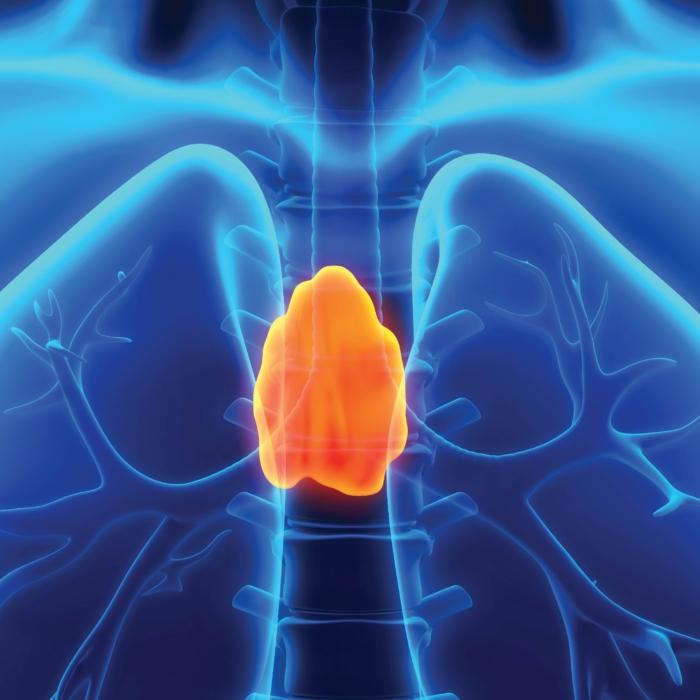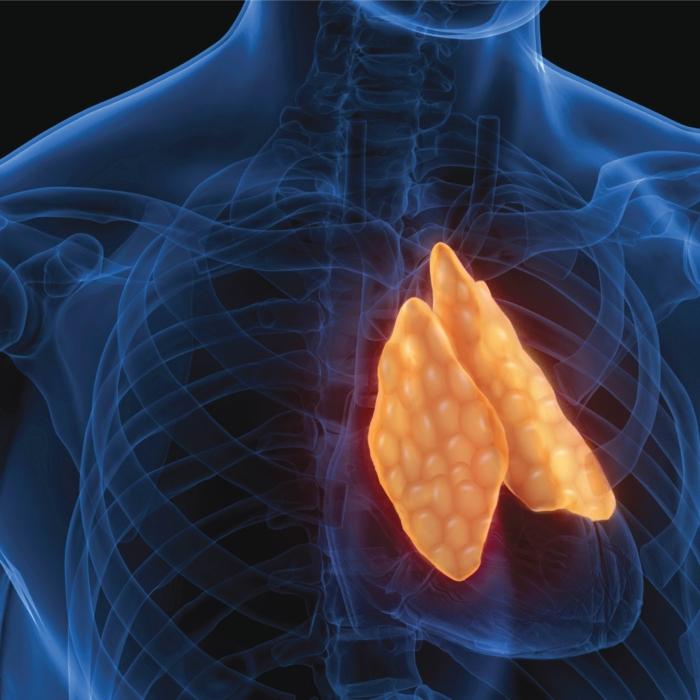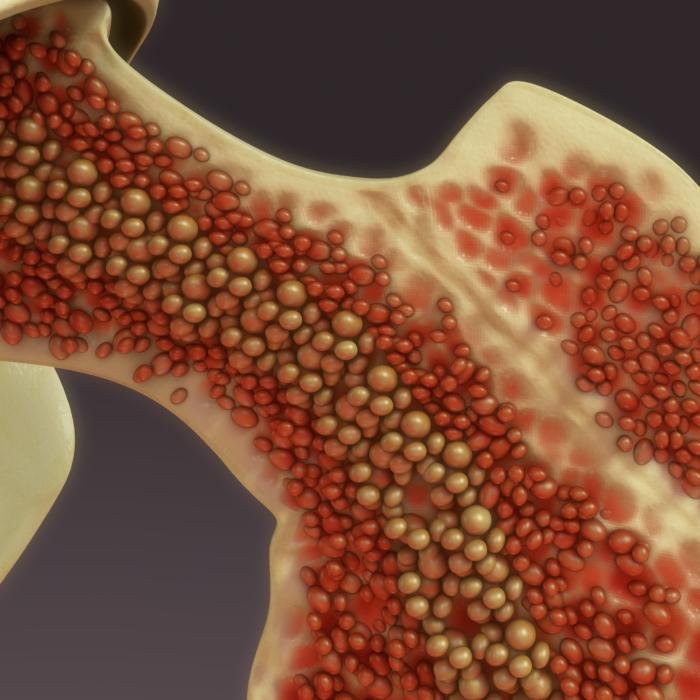As we have stated in previous articles, tonsils are a front line of immune defense that foreign viruses and bacteria must confront to enter the body. Tonsil removal, therefore, allows pathogens to enter the body undetected, and it also affect the natural defense patterns in many ways. This leaves the body vulnerable to long-term serious, potentially life-threatening conditions.
Summary of Key Facts
- A retrospective cohort study of patients after tonsillectomy found a higher risk of developing esophageal cancer or precancerous conditions.
- A large study from Denmark found that tonsillectomy can reduce the risk of tonsil and oropharyngeal cancer in people under 60 years old by up to 85 percent. However, for those over 60, tonsillectomy may increase the risk of these cancers by up to three times.
- A study at the University of North Carolina at Chapel Hill found that having a tonsillectomy before age 13 increased the risk of cancer at the base of the tongue. Tonsillectomy doubled the risk of tongue cancer but lowered the risk of tonsil cancer.
- A study of women living in western New York found that a history of tonsillectomy was associated with an increased risk of breast cancer among premenopausal but not postmenopausal women.
- A study conducted in Sweden that followed more than 80,000 people who had their tonsils or appendix removed before the age of 20 found that they had a higher risk of a heart attack later in life. The risk was highest for those who had both procedures.
- A Taiwan study that analyzed data from 1,300 tonsillectomy patients and 2,600 matched controls found that patients who had a tonsillectomy had nearly twice the risk of developing irritable bowel syndrome as those who didn’t. The risk was even higher for patients over 50 years old.
- Risks and benefits should be carefully considered before deciding whether a tonsillectomy is an appropriate solution.
Esophageal Cancer
Esophageal cancer is a dangerous type of cancer that more than 80 percent of people don’t survive for more than five years. About 21,560 new cases of esophageal cancer and 16,120 deaths from the disease are projected to occur in the United States in 2023, according to the American Cancer Society.Cases with esophageal cancer or a pre-cancerous condition had a 19.9 percent tonsillectomy history, which is significantly higher than that of control cases (12.7 percent; p-value = 0.0003). This association remained even when accounting for other known risk factors for esophageal cancer, such as obesity, gastroesophageal reflux disease, and smoking.

The study mentioned that the exact reason behind this connection isn’t known, but one possible explanation is that the removal of tonsils may cause an imbalance in the microbiome of the esophagus, intestines, or both, which can lead to exposure to harmful bacteria and uncontrolled activation of inflammatory pathways, potentially affecting the immune system.
Throat and Tonsil Cancer
Throat cancer and tonsil cancer can occur when there’s an abnormal growth of cells in the middle part of the throat, the oropharynx. More than 90 percent of these cancers are squamous cell carcinomas, which means they start in the thin, flat cells that line the throat.There are two types of oropharynx cancer: HPV-associated and non-HPV-associated. HPV-associated cancer is caused by a type of virus that spreads through oral sex. This type of cancer is becoming more common, especially in younger people and men. Non-HPV-associated throat cancer is mostly caused by smoking and heavy drinking.
Tonsil cancer is the most common form of oropharyngeal cancer, and even those who’ve had a tonsillectomy still have a chance to develop cancer in the tissue that’s left behind.
Tongue Cancer
Researchers at the University of North Carolina–Chapel Hill School of Medicine found that tonsillectomy of people younger than 13 was associated with a nearly two-fold increased risk of tongue cancer and a large decrease in the risk of tonsil cancer. The same trend still exists when considering other risk factors such as sexual history, smoking status, and age.The study results were based on an analysis of 1,378 controls, 108 base tongue cancer cases, and 198 tonsil cancer cases.
Breast Cancer
A population-based case-control study of women living in western New York from 1986 to 1991 found that a history of tonsillectomy was associated with an increased breast cancer risk among premenopausal but not postmenopausal women.Acute Myocardial Infarction
A national large-scale study from Sweden found that people who had their tonsils or appendix removed before the age of 20 had a higher risk of acute myocardial infarction, also known as a heart attack.The study followed more than 80,000 people for an average of 23.5 years, including 54,449 who had appendectomies and 27,284 who had tonsillectomies.
Irritable Bowel Syndrome
About 7 to 16 percent of the population in the United States is affected by irritable bowel syndrome (IBS). The disorder has subtypes that are categorized by diarrhea, constipation, or both. IBS can cause stomach and bowel problems such as diarrhea, constipation, bloating, gas, and stomach pain. Aging, stress, and smoking are common risk factors, and IBS is more common among females.
Tonsils help differentiate between commensal and pathogenic bacteria in the alimentary tract and prevent unnecessary immune responses, and tonsillectomy in older patients may show a higher correlation with IBS development than in younger patients.
Risks Versus Benefits of Tonsillectomy
Tonsillectomy is a common procedure for treating recurrent tonsillitis and other conditions, but it isn’t always necessary or best for everyone. As with any medical procedure, there are risks and benefits to consider, and it’s important to discuss these with a health care professional to determine the best course of action. Physicians, patients, and families may want to take these findings into consideration when considering a tonsillectomy.Tonsillectomy is often considered a minor procedure in children, but it comes with risks of complications, such as respiratory problems, nausea, vomiting, pain, and even death. Tonsillectomy has shown short-term benefits such as reduced throat infections and better sleep outcomes.
Long-term risks associated with tonsillectomy include increased risk of infections, respiratory disease, cancers, acute myocardial infarction, and intestinal diseases, some of which are life-threatening. These unexpected long-term effects of tonsillectomy are reminders of the natural healing power and immunity of the human body.
Although there may be a motivation to remove tonsils to quickly resolve symptoms, it may not be easy to repair the body’s divinely endowed natural immunity and could lead to more severe consequences.
◇ References:
Rustgi, A. K., & El-Serag, H. B. (2014). Esophageal carcinoma. The New England Journal of Medicine, 371(26), 2499–2509. https://doi.org/10.1056/NEJMra1314530Yang, L., Lu, X., Nossa, C. W., Francois, F., Peek, R. M., & Pei, Z. (2009). Inflammation and intestinal metaplasia of the distal esophagus are associated with alterations in the microbiome. Gastroenterology, 137(2), 588–597. https://doi.org/10.1053/j.gastro.2009.04.046
Abrams J. A. (2017). The microbiome as a potential biomarker for oesophageal adenocarcinoma. The Lancet. Gastroenterology & hepatology, 2(1), 4–6. https://doi.org/10.1016/S2468-1253(16)30177-7
Baghdadi, J., Chaudhary, N., Pei, Z., & Yang, L. (2014). Microbiome, innate immunity, and esophageal adenocarcinoma. Clinics in laboratory medicine, 34(4), 721–732. https://doi.org/10.1016/j.cll.2014.08.001
O'Riordan, J. M., Abdel-Latif, M. M., Ravi, N., McNamara, D., Byrne, P. J., McDonald, G. S., Keeling, P. W., Kelleher, D., & Reynolds, J. V. (2005). Proinflammatory cytokine and nuclear factor kappa-B expression along the inflammation-metaplasia-dysplasia-adenocarcinoma sequence in the esophagus. The American Journal of Gastroenterology, 100(6), 1257–1264. https://doi.org/10.1111/j.1572-0241.2005.41338.x
Maeda, S., & Omata, M. (2008). Inflammation and cancer: role of nuclear factor-kappaB activation. Cancer science, 99(5), 836–842. https://doi.org/10.1111/j.1349-7006.2008.00763.x
Chaturvedi, A. K., Anderson, W. F., Lortet-Tieulent, J., Curado, M. P., Ferlay, J., Franceschi, S., Rosenberg, P. S., Bray, F., & Gillison, M. L. (2013). Worldwide trends in incidence rates for oral cavity and oropharyngeal cancers. Journal of Clinical Oncology: official journal of the American Society of Clinical Oncology, 31(36), 4550–4559. https://doi.org/10.1200/JCO.2013.50.3870
Jamal Z, Anjum F. Oropharyngeal Squamous Cell Carcinoma. [Updated 2022 Sep 26]. In: StatPearls [Internet]. Treasure Island (FL): StatPearls Publishing; 2022 Jan-. Available from: https://www.ncbi.nlm.nih.gov/books/NBK563268/
Yamamura, K., Baba, Y., Nakagawa, S., Mima, K., Miyake, K., Nakamura, K., Sawayama, H., Kinoshita, K., Ishimoto, T., Iwatsuki, M., Sakamoto, Y., Yamashita, Y., Yoshida, N., Watanabe, M., & Baba, H. (2016). Human Microbiome Fusobacterium Nucleatum in Esophageal Cancer Tissue Is Associated with Prognosis. Clinical cancer research: an official journal of the American Association for Cancer Research, 22(22), 5574–5581. https://doi.org/10.1158/1078-0432.CCR-16-1786
Fakhry, C., Andersen, K. K., Christensen, J., Agrawal, N., & Eisele, D. W. (2015). The Impact of Tonsillectomy upon the Risk of Oropharyngeal Carcinoma Diagnosis and Prognosis in the Danish Cancer Registry. Cancer prevention research (Philadelphia, Pa.), 8(7), 583–589. https://doi.org/10.1158/1940-6207.CAPR-15-0101
Multhoff, G., Molls, M., & Radons, J. (2012). Chronic inflammation in cancer development. Frontiers in immunology, 2, 98. https://doi.org/10.3389/fimmu.2011.00098
Zevallos, J. P., Mazul, A. L., Rodriguez, N., Weissler, M. C., Brennan, P., Anantharaman, D., Abedi-Ardekani, B., Neil Hayes, D., & Olshan, A. F. (2016). Previous tonsillectomy modifies odds of tonsil and base of tongue cancer. British Journal of Cancer, 114(7), 832–838. https://doi.org/10.1038/bjc.2016.63
Fricke, B. L., Donnelly, L. F., Shott, S. R., Kalra, M., Poe, S. A., Chini, B. A., & Amin, R. S. (2006). Comparison of lingual tonsil size as depicted on MR imaging between children with obstructive sleep apnea despite previous tonsillectomy and adenoidectomy and normal controls. Pediatric radiology, 36(6), 518–523. https://doi.org/10.1007/s00247-006-0149-7
Brasky, T. M., Bonner, M.R., Dorn, J., Marshall, J.R., Vena, J.E., Brasure, J.R., & Freudenheim, J.L. (2009). Tonsillectomy and breast cancer risk in the Western New York Diet Study. Cancer causes & control: CCC, 20(3), 369–374. https://doi.org/10.1007/s10552-008-9251-5
Mishra, D., Singh, S., & Narayan, G. (2016). Role of B Cell Development Marker CD10 in Cancer Progression and Prognosis. Molecular biology international, 2016, 4328697. https://doi.org/10.1155/2016/4328697
Janszky, I., Mukamal, K. J., Dalman, C., Hammar, N., & Ahnve, S. (2011). Childhood appendectomy, tonsillectomy, and risk for premature acute myocardial infarction--a nationwide population-based cohort study. European heart journal, 32(18), 2290–2296. https://doi.org/10.1093/eurheartj/ehr137
Robinette, C. D., & Fraumeni, J. F., Jr (1977). Splenectomy and subsequent mortality in veterans of the 1939-45 war. Lancet (London, England), 2(8029), 127–129. https://doi.org/10.1016/s0140-6736(77)90132-5
Wu, M. C., Ma, K. S., Wang, Y. H., & Wei, J. C. (2020). Impact of tonsillectomy on irritable bowel syndrome: A nationwide population-based cohort study. PloS one, 15(9), e0238242. https://doi.org/10.1371/journal.pone.0238242
Andreu-Ballester, J. C., Pérez-Griera, J., Ballester, F., Colomer-Rubio, E., Ortiz-Tarín, I., & Peñarroja Otero, C. (2007). Secretory immunoglobulin A (sIgA) deficiency in serum of patients with GALTectomy (appendectomy and tonsillectomy). Clinical immunology (Orlando, Fla.), 123(3), 289–297. https://doi.org/10.1016/j.clim.2007.02.004
Wang, L., Alammar, N., Singh, R., Nanavati, J., Song, Y., Chaudhary, R., & Mullin, G. E. (2020). Gut Microbial Dysbiosis in the Irritable Bowel Syndrome: A Systematic Review and Meta-Analysis of Case-Control Studies. Journal of the Academy of Nutrition and Dietetics, 120(4), 565–586. https://doi.org/10.1016/j.jand.2019.05.015
Sun, W., Han, X., Wu, S., & Yang, C. (2016). Tonsillectomy and the risk of inflammatory bowel disease: A systematic review and meta-analysis. Journal of Gastroenterology and Hepatology, 31(6), 1085–1094. https://doi.org/10.1111/jgh.13273
Ford, A. C., Lacy, B. E., & Talley, N. J. (2017). Irritable Bowel Syndrome. The New England Journal of Medicine, 376(26), 2566–2578. https://doi.org/10.1056/NEJMra1607547
Nam, S. Y., Kim, B. C., Ryu, K. H., & Park, B. J. (2010). Prevalence and risk factors of irritable bowel syndrome in healthy screenee undergoing colonoscopy and laboratory tests. Journal of Neurogastroenterology and Motility, 16(1), 47–51. https://doi.org/10.5056/jnm.2010.16.1.47




